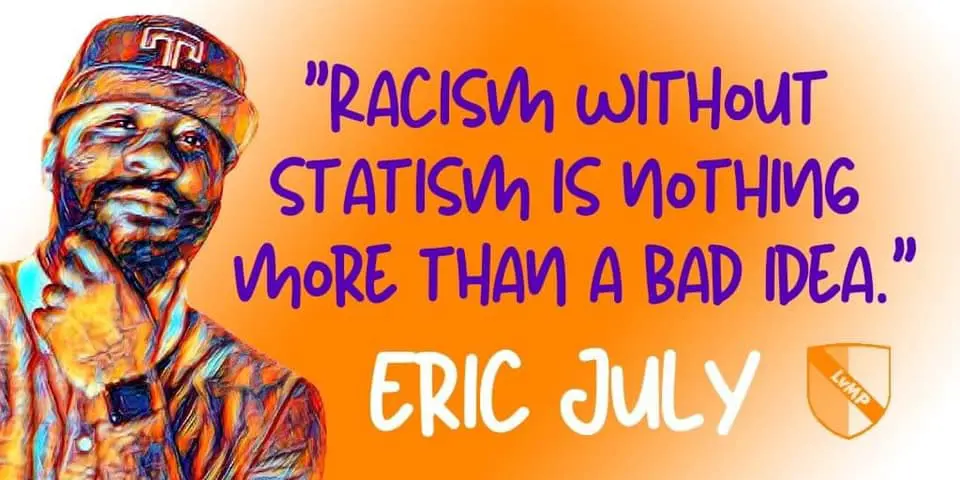
The murder of George Floyd has proven to be a tipping point in America. Not only are various politicians looking at criminal justice reform, but some police officers are abandoning their posts as they’ve done in Seattle, Minneapolis, and now Atlanta. This doesn’t seem to be your usual (and temporary) social outrage. But what is it that we’re tipping towards? What began with peaceful protests against excessive use of force by the police, has culminated with President Trump threatening to deploy the US Military against American cities by way of the Insurrection Act.
Now calls go out to abolish law enforcement as we know it and change the system. I think many more Americans are now open to change, but change to what?
Despite ignorant critics wondering where libertarians are on criminal justice reform, libertarians have been calling for a change for decades.
We’ve been specific in our aim at upholding the individual rights and human dignity of every single person. One thing we’ve continually pointed to over the past several decades, is that the system disproportionately (and therefore unjustly) targets black communities. This is evidence that the system is inherently flawed and desperately needs radical change.
In fact, libertarians not only point out the cruelty of the criminal justice system, but also how economic regulations are also cruel, like licensing requirements such as for hairbraiding, among many others. Even the economic lockdown in the name of protecting us from COVID-19 had a major (and detrimental impact) on black business owners.
It’s no secret that of self-identified libertarians, the majority are primarily white men. And these white men have been speaking against systemic rights violations by the government for decades. They continually defy the narrative that our social problems stem largely from being white or being male. And yet, while violence perpetrated against Americans comes largely from government agencies, who has become the whipping boy? White men, and now more broadly, anyone of “white privilege.”
Government agencies have been integrating people of color into their ranks in the name of “cultural representation” and diversity for decades as well. If having a culturally diverse government hasn’t solved the problem of systemic racism, then the systemic problem isn’t limited to racism.
That’s not a denial that the systemic problem doesn’t disproportionately affect black communities. It does, but the problem isn’t merely one of race. In fact, this interview Thaddeus Russell did with feminist legal scholar and attorney Aya Gruber, is quite enlightening. Gruber explains the role feminism has played in creating the very system that we now need to change. And one candidate for President (guess who!) is directly responsible for making some of these policies a legal reality.
Let me make this absolutely clear: the problems endemic in the black community are symptomatic of authoritarianism. It doesn’t matter if the authoritarians wear “blue” or “red” colors. Authoritarianism is characterized by violence; it is intrinsic to the state which monopolizes power and usurps genuine civil governance. It is truly uncivil to the core. It uses law enforcement agencies who are given unlawful protections by lawmakers who might be racist, but are definitely lusting after power. Authoritarianism can go by a number of different names: Marxism, Fascism, Patriarchalism, Feminism, Socialism, Corporatism, even classical Republicanism and Democracy are ultimately authoritarian.
The organization called “Black Lives Matter” claims to have the answer – the only answer. You can read their policy platform here. But there’s another problem brewing: if you don’t support Black Lives Matter, then you’re labeled a racist or said to be expressing “white fragility.”
Let me parse out Black Lives Matter (the formal organization) from black lives matter (the moral assertion that people of color are human beings whose individual lives and rights have inherent value).
Affirming that black lives matter is not the same as agreeing with Black Lives Matter.
Demanding the latter as if it’s the former is manipulative and deceitful.
Disagreeing with Black Lives Matter doesn’t mean you can’t, or shouldn’t affirm that black lives matter.
Affirming that black lives matter, doesn’t detract from the fact that all lives matter.
Disagreeing with Black Lives Matter doesn’t make you racist. Disagreeing that black lives matter is racist.
But Black Lives Matter has a bait and switch agenda: “If black lives matter, then only Black Lives Matter” in their view – making their organization and tactics freakishly cultish.
We can denounce Black Lives Matter and still uphold that black lives matter. This doesn’t require self-abasement or an admission of “unconscious racism” or “white fragility.” If you uphold that black lives matter, then you’re by definition not racist – at least towards the black community.
And since black lives matter, then it is indeed time to deal with the systemic violence disproportionately affecting the black community, but is perpetrated on all of us: that systemic problem is the state itself. It’s not only the police, it’s the laws created by cowards for the police to enforce, and the justice system which fails to be impartial.
Because Black Lives Matter, the organization, promotes one kind of authoritarian agenda which promotes slavery for all: Marxism. They think being their own authoritarians will give them the freedom they desire. It won’t! Just ask the Navajo Nation. Let’s compare the differences between the Marxist Black Lives Matter, and the libertarian view that black lives matter:
Marxist “Black Lives Matter“ |
Libertarian “black lives matter“ |
| End war against black people | End all wars – do it immediately to give relief to black (and other affected) communities |
| Reparations for past harms | Restitution for violations of the Non-Aggression Principle |
| Divest from police; invest in black communities | Divest from the monopoly state; keep the fruits of your labor – taxation is theft! |
| Economic justice for blacks | Economic freedom for all – done immediately to give relief to black communities |
| Community control | Voluntary cooperation and interdependence |
| Independent black political power and self-determination | Individual self-determination and freedom of association |
| Rights for protesters | Rights based on self-ownership |
| Economic relief for COVID/economic fallout | End the lockdown now |
Throughout this article I’ve included many hyperlinks which I hope you’ll explore. This conversation is long overdue and goes well beyond fanciful “what if?” scenarios. I’m also pleased to see that Matt Kibbe and the guys at Free the People have published their award-winning documentary on Restorative Justice. I invite you to watch it, and take note of how (and why) we don’t have to do criminal justice the way we’ve been doing it. (And we don’t need the state to do it!) America could be tipping toward freedom if we want it to, but if we do nothing, then it will fall into communism. We can change the system and we don’t have to abandon our humanity in the process.
Has Anti-Racism Become as Harmful as Racism? John McWhorter vs. Nikhil Singh (The Soho Forum)
The Problems With the Police, a free eBook by New York Times bestselling author Tom Woods, gets to the bottom of the questions we need answered.
The Monopoly on Violence (Documentary)
For a New Liberty: A Libertarian Manifesto by Murray Rothbard
The Law by Frederick Bastiat
Economics is One Lesson by Henry Hazlitt

Articles posted on LCI represent a broad range of views from authors who identify as both Christian and libertarian. Of course, not everyone will agree with every article, and not every article represents an official position from LCI. Please direct any inquiries regarding the specifics of the article to the author.
Did you read this in a non-English version? We would be grateful for your feedback on our auto-translation software.
), //libertarianchristians.com/wp-content/plugins/smartquizbuilder/includes/images/template6-latest.jpeg))

), https://libertarianchristians.com/wp-content/plugins/smartquizbuilder/includes/images/template6-latest.jpeg))








































), https://libertarianchristians.com/wp-content/plugins/smartquizbuilder/includes/images/template6-latest.jpeg))
), https://libertarianchristians.com/wp-content/plugins/smartquizbuilder/includes/images/template6-latest.jpeg))
), https://libertarianchristians.com/wp-content/plugins/smartquizbuilder/includes/images/template6-latest.jpeg))





*by signing up, you also agree to get weekly updates to our newsletter
Sign up and receive updates any day we publish a new article or podcast episode!